
Russia has quite an amount of deserts! We have already talked about Arctic deserts, but regular ones are also not a big rarity. They are located not only in the hot regions of the country but also in Siberia.
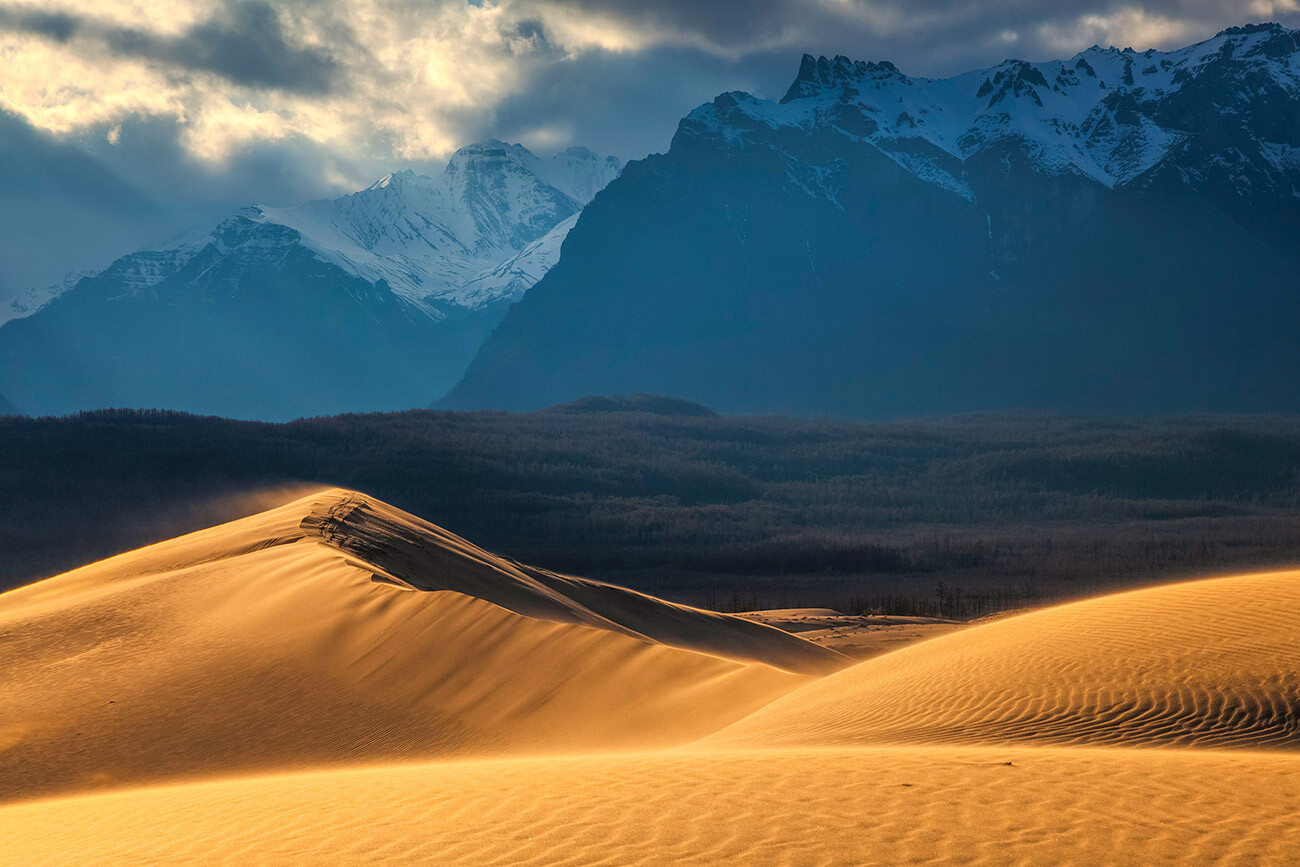
Nature has found quite an unusual place for this desert – in the north of Zabaikalye Region, Siberia. Imagine dense forests, surrounded by the snow-capped mountains of the Kodar mountain range and in the middle of them – a real desert with canonical dunes 5-by-10 kilometers in size. It looks absolutely incredible!
Specialists believe that these sands are sediment layers of an ancient body of water from the Ice Age. The height of some dunes reaches 80 meters!
The Chara Sands is one of the northernmost deserts of the world; in summer, it’s very hot, but the surrounding lakes remain cool.
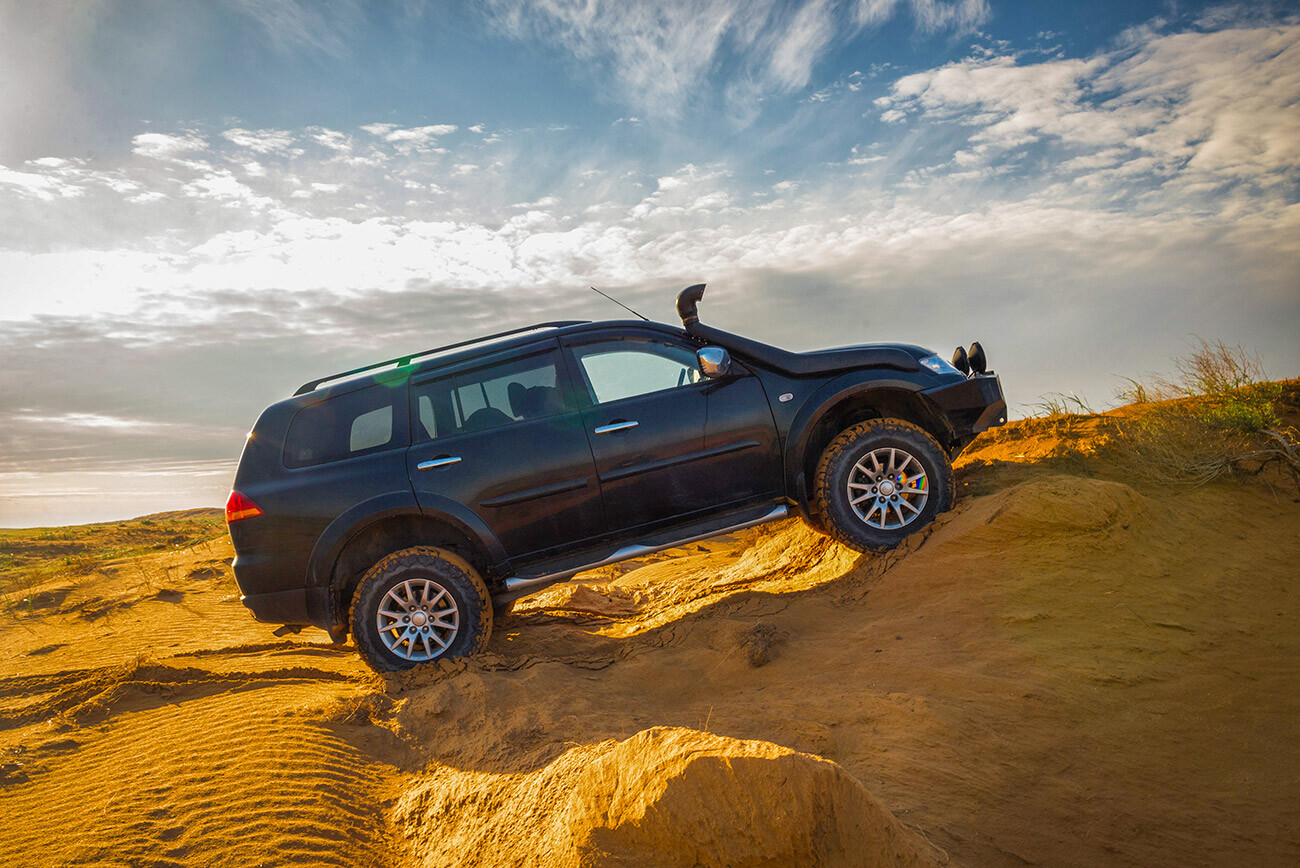
Now this is a real, standard desert. It’s located in the south of Russia, on the border between Astrakhan Region and Kazakhstan and has a total length of 160 kilometers. The dune height reaches 13 meters and the desert also experiences real sand storms. Quite often, people find shells in the sand (70,000 years ago, there was a large lake in its place). In the 12th century, these lands were the heart of the Golden Horde.
The Ryn Desert is a popular place for jeep tours. But, you also have to remember that Astrakhan Region is one of the hottest regions of Russia; in summer, the temperatures consistently rise over +30.
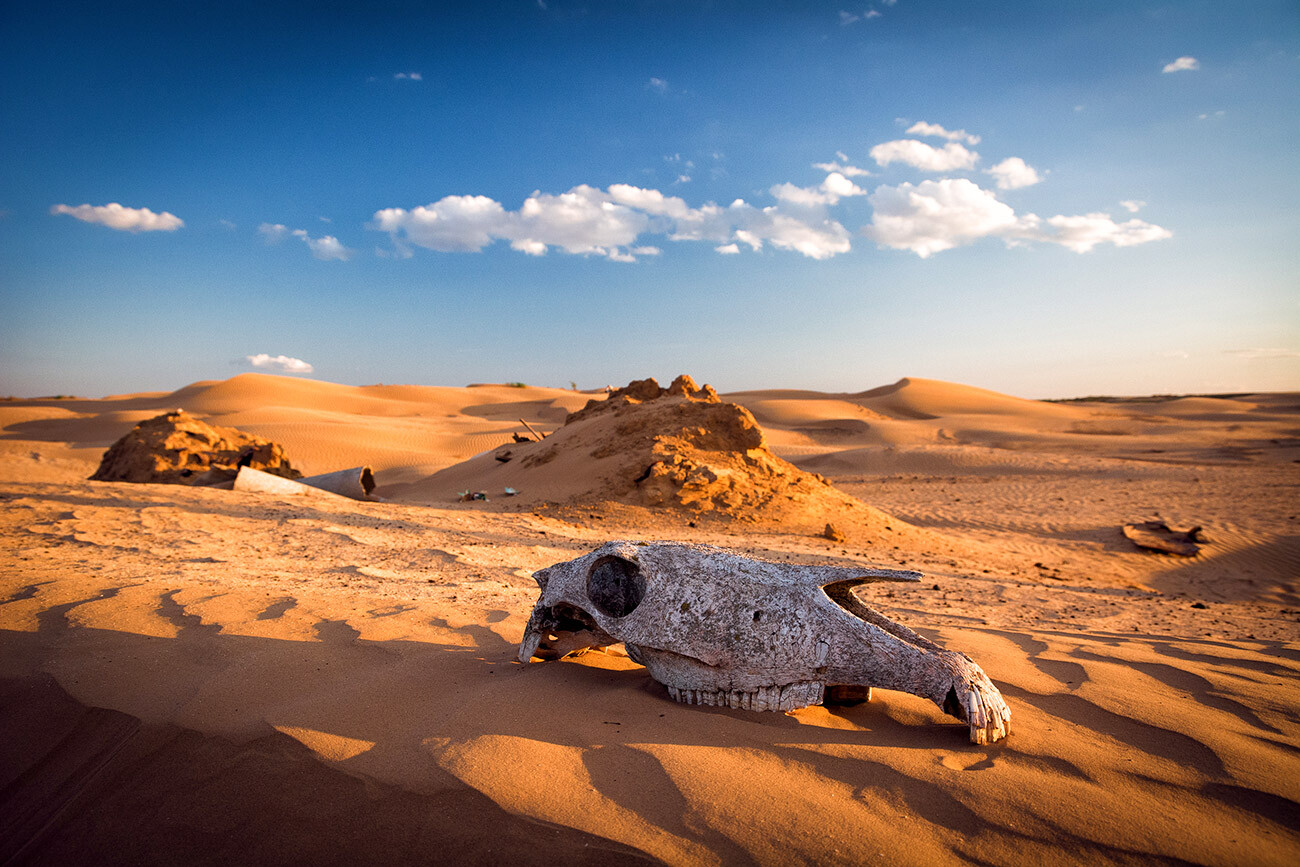
This is the only desert in Europe that appeared due to human activity. ‘Chornye Zemli’ (“Black Lands”) in Kalmykia was initially classified as a semi-arid climate area; however, after the plowing of sandy soils and unregulated livestock herding in the middle of the previous century, these territories began to rapidly transform into a desert. Every year, over 40 hectares of Kalmykia’s lands were turning into deserts. People only managed to slow down this process in the 1990s with the help of revegetation.
As of today, the Chornye Zemli desert occupies a little less than half of the entire Kalmykia. Part of the desert has a nature reserve of the same name, inhabited by one of the most unusual animals in the world – the saiga antelope.

Do you like to watch car rallies? Then, these parts will seem familiar to you. For several years, the Silk Way Rally route went through the Archedinsko-Donskie Sands.
The sandy landscape near the Don River is quite an unusual sight! These sandy slopes occupy about 2,000 square kilometers of Volgograd Region, with the height of its dunes reaching 7 meters. However, there is some vegetation. The sands are, most likely, river bed sediments. In ancient times, the flow of the Don River was much larger than today.
In Soviet times, they tried to cultivate greenery in these places. To this day, ecologists maintain ponds that prevent total desertification.
The locals call this desert territory near Voronezh ‘The Don Sahara’. It’s also located in the vicinity of the Don River, but somewhat more to the north from the Archedinsky Sands. This territory is relatively small, less than 5 kilometers in length. But, what’s surprising is its proximity to fields, forests and lakes. Back at the beginning of the 20th century, this “Sahara” was growing, causing a lot of inconvenience to people with its sand storms.
Today, the growth of this “Sahara” is managed by comprehensive revegetation.
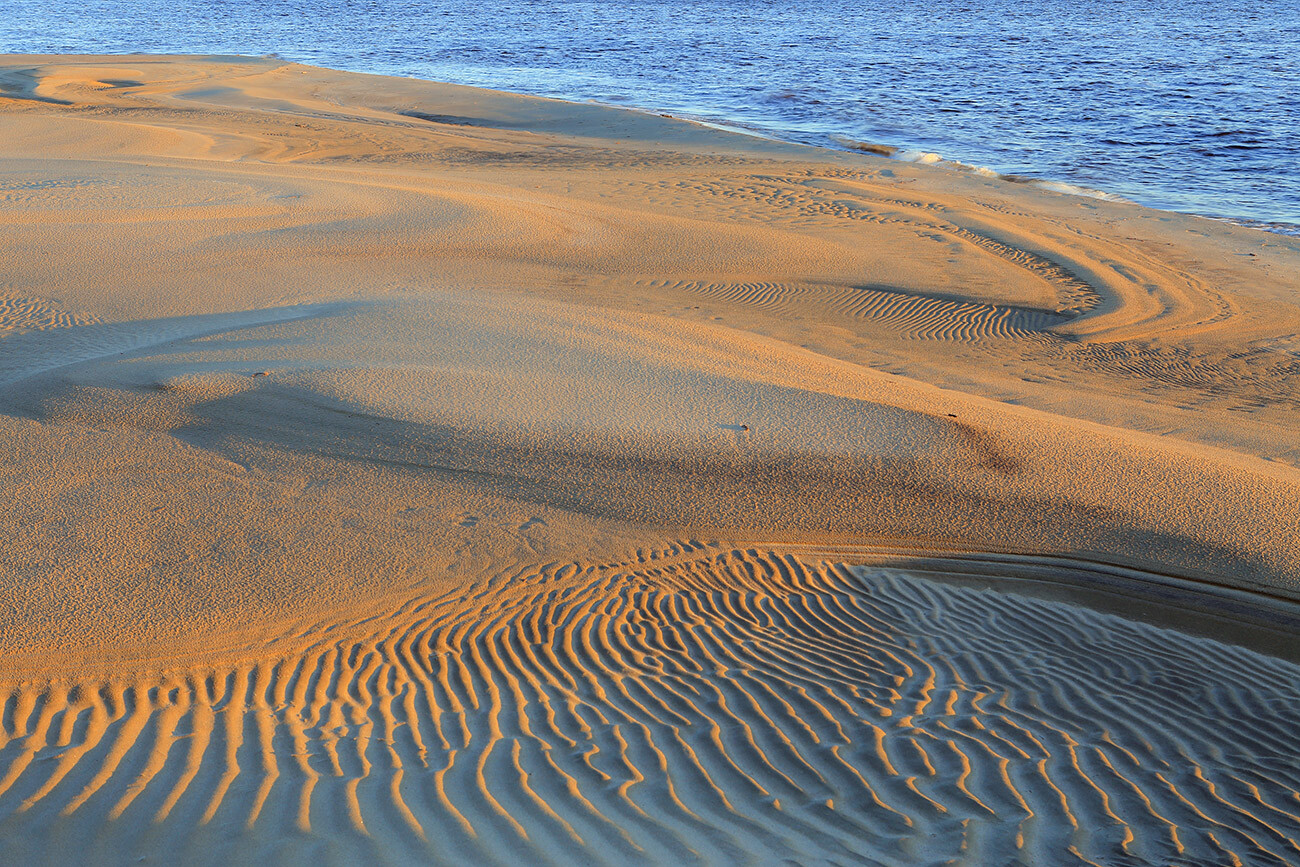
Yakutia, the coldest (and the largest) region of Russia, has a lot of exotic stuff, overall. Just look at the glaciers that never melt even in hot weather! There’s also a real desert in the middle of the taiga, which is referred to as ‘tukulan’ – ‘sands’ in Yakutian. You can see it in the Lena Pillars Nature Reserve along the Lena River, one of the largest rivers in Siberia. Perhaps, those sands are also ancient river bed sediments.
This tukulan stretches for 5 kilometers, with its slopes reaching a height of 50 meters.
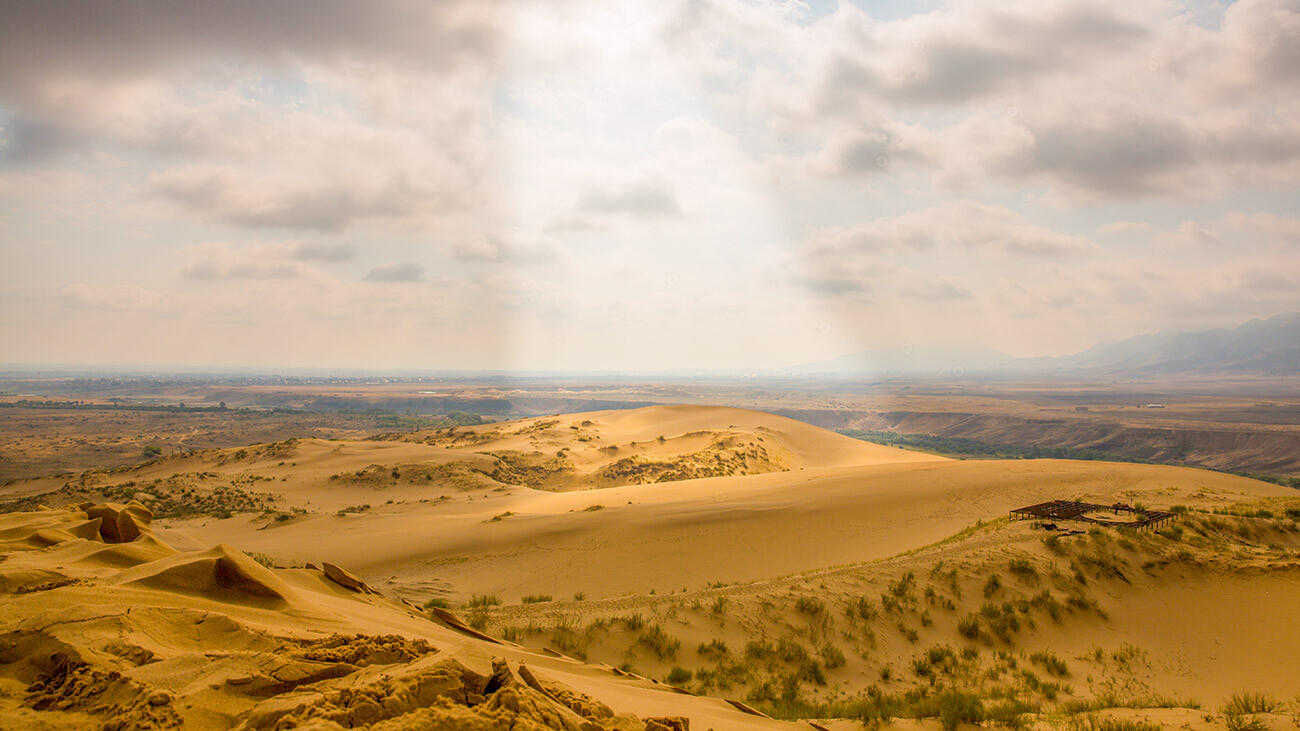
The name of this dune literally means “yellow sand”. Sary-Kum is located in the central part of Dagestan in the south of Russia. This is where the Soviet “Eastern” ‘White Sun of the Desert’ was filmed (a response to Hollywood’s “Westerns”). It turned out to be quite realistic! The dune is just 3 kilometers long, but its summits can grow taller than 200 meters (sometimes, the sands can reach up to 260 meters). It’s never cold, however, with horrific heat during summer.
The nature of its appearance was studied back at the end of the 19th century and the conclusion was reached that it emerged, due to the breakdown of the local mountains’ sandstones.
Dear readers,
Our website and social media accounts are under threat of being restricted or banned, due to the current circumstances. So, to keep up with our latest content, simply do the following:
If using any of Russia Beyond's content, partly or in full, always provide an active hyperlink to the original material.
Subscribe
to our newsletter!
Get the week's best stories straight to your inbox